An interview with Cole Summers.
If you were to ever mention the name Cole Summers to anyone involved in Canadian track, hockey, or rugby, you’d most likely get a knowing nod and a smile in return.
The title of ‘legend’ is overused in sports, but in Cole’s case, it’s valid. Writing out his entire resume would take more words than we have to play with here, so for the sake of time we’ll summarize it by saying that he has served as strength coach to university teams in multiple sports, trained champion boxers, formed one of the world’s first women’s rugby teams, and worked with many NHL players.
Many who have been coached by Cole at a StrongFirst event will tell you they walked away hoping to be even half as affable and energetic at his age. After all, there aren’t many people in their eighth decade who can whip up into a front lever. But Cole’s impressive strength is not only physical; his extensive knowledge, warmth, and candor, are all underpinned by a desire to help and empower others.
In recognition of the esteem in which he is held and his contribution to the StrongFirst community, Cole was recently appointed Master StrongFirst Certified Instructor ad honorem.

Fresh from receiving the honor, Cole kindly took a few minutes to share his memories of taking the first North American rugby team behind the Iron Curtain, talk about his family’s rich sporting legacy, and reveal why being a good man is even more important to him than being an effective coach.
Tell us a little about your sporting background
My dad is in the Manitoba Hall of Fame for boxing, track, and hockey, and in the National Hall of Fame for the latter. He later became Director of Scouting for the Rangers and consulted for the San Jose Sharks after he retired.
My uncle was too small to be the kind of hockey player he wanted to be, so he became a jockey. After winning Canadian Jockey of the Year, he went to race at the famed Santa Anita track in California for many years.
My great uncle played for the Chicago Blackhawks and then won the Stanley Cup with the New York Rangers. He played with the great uncle of my friend, Al Gardiner.
Al and I became best friends and said we wanted to continue our families’ sporting legacies. In his case, that meant being one of the world’s best sprint coaches. I wasn’t pressured into sports—it was in my blood. One of my earliest memories is of skating on a frozen pond.
I played hockey and got some interest from colleges, but I broke my leg when I was 16. After that, I learned Gung Fu, became a yoga instructor, and began rugby late, at age 29. From 1972 onward, I started coaching all three, and working on strength and conditioning with athletes in track, boxing, and all kinds of sports.
What impact did your father’s coaching and scouting have on your own coaching career?
My dad was a notorious tough guy on the ice and only lost one fight in 18 years. But he always treated people with respect. I can’t tell you how many people who’ve said to me, “Your dad was a true gentleman.” That’s what I strive for and what I look for in my athletes.
I remember my dad on the phone asking people, “What is he like in the room?” when he was scouting. What he meant was that he wasn’t so interested in what someone could do on the ice—everyone he looked at was a good player. He wanted to know what they would be like in the locker room. What were they like as a person?

It’s the same with people I coach. I think about how they’ll be in a group setting and whether they’ll encourage one another. That’s why I turn away more people than I accept.
When I’m coaching kids, I tell them that the adults I work with include professional athletes, doctors, police officers, and all kinds of other professions. The one thing they all have in common? Focus. It takes concentration, persistence, and discipline to be the best.
When did you begin kettlebell training?
I’ve always been interested in the training methods of the former Soviet Union and started reading Pavel’s articles. I remember that one was about kettlebells, vodka, and pickle juice. In February 2006, I went to one of his seminars on kettlebell training and mobility. I took the skybridge that came out of the hotel and ran into Pavel. I told him that I recognized the lake that was in a picture beside one of his stories. It turns out I was right—it was White Bear Lake, which was near where he lived before moving to California. My dad had played hockey close by in the 50s. From that first conversation on, he was very respectful and kind, and we became great friends.
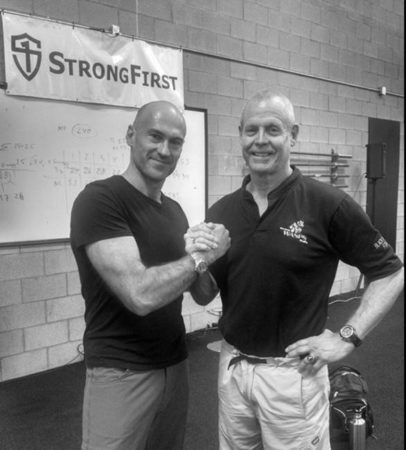
Later, I attended a kettlebell certification and, a couple of years later, got my Level II as well. After that, Pavel asked if I’d come down and assist him at a seminar. He told me, “Just make sure we’re on time, and walk around and take notes.” A few years later he invited me out to Venice Beach and we worked on front levers and other bodyweight exercises. When my mother and brother died, he was one of the first to call to see how I was doing. I love his work and appreciate him as a person.
What was it like to be on the first North American rugby team to tour Eastern Europe back in the 1980s?
A lot of people said we were crazy and that we shouldn’t go, but we did it anyway. It just so happened that Chernobyl blew up while we were over there. The tour was a great hit and we were invited back to Prague in 1998. I enjoyed it so much that I went back in 2001, 2016, 2018, and earlier this year.

One of my greatest friends there, Bruno, built up a very successful company founded on the rugby team model. He still talks about the impact the original 1986 tour had on him. One of the restaurants has a signed photo album from that time and a framed jersey of mine hanging on the wall.
My last rugby game was in 2001. We were in Holland and, despite drinking too much beer and not getting enough sleep the night before, our team won the tournament.
In coaching across a range of sports, have you seen the “What the hell” effect?
Many times. There was this one guy, Dennis, who used to be really into powerlifting. When I first met him, he’d take about 10 minutes getting on his bench shirt when he was about to press. I introduced him to kettlebell training and after a couple of months, he found he could lift far more in his t-shirt than he could in his bench shirt.
He also became one of the best scrum-halves in our province. The first game I went to watch him play in after we started working together, he scored three tries, and two of them were breakaways almost the whole length of the field. The kettlebells had given him so much more speed, and the ability to repeat it over and over on the field. After the final whistle blew, he looked over at me and yelled, “Thank you, Cole!”
Without wanting to sound like I’m bragging, the high school basketball team I coach is the ‘winningest’ in Manitoba. Since I started working with the players, we’ve focused on the fundamentals. Several years back, when they won two provincial titles in a row, I started them on a program of:
- Hip hinge progressions, from unloaded to various deadlifts
- Kettlebell swings
- Get-ups
- Pull-ups and chin-ups
- Kettlebell presses
- Kettlebell squats
These exercises give them the biggest bang for the buck, particularly swings and get-ups. Their vertical jumps increased enormously; they were visibly much quicker, and they won the majority of the fights for the ball. Several of the boys could perform a get-up with 48kg.

The results were so impressive that I train long-time Head Coach, Phil Penner, and his two sons, who are student-athletes (and outstanding human beings).
The rugby players I train follow very similar programs. I add neck strengthening work for both the female and male rugby players, just as Master StrongFirst Certified Instructor Pavel Macek teaches in Resilient.
The performance increase on the pitch is remarkable. They are quicker and able to repeat this quickness over and over. They win the majority of collisions and become much better at ripping the ball from their opponents.
I find the principles of Strong Endurance—going hard but resting longer—to be very helpful in maintaining power for all kinds of athletes and I apply them for my own training too.
There are striking similarities between Strong Endurance and Team Canada track training. My lifelong friend, Al Gardiner—Team Canada Head Athletics Coach for multiple Olympic Games, and Director of High Performance on the Canadian Olympic Committee—is a great admirer of Pavel’s work. I taught Al, and his athletic sons and daughter, the SFB tension and relaxation drills. He uses them regularly with his multi-sport athletes at the University of Manitoba.
What are your go-to exercises and programs for beginners?
My mission statement is:
- Do no harm, keep them safe
- Help them grow as human beings
- Get them strong and everything improves
I train my students of all ages and backgrounds according to StrongFirst principles. I just want them to do the basics well.
Exercise selection is based on the capabilities of the individual and the group. I’ll take into account their physical and psychological maturity, training history, their experience level in strength training, sociological and cultural issues, history of injury, physical limitations, mental focus, awareness of space, and much more.

Over the years, I have taken programs from Pavel’s work, such as Simple and Sinister, and been heavily influenced by the SFB principles and methodology.
You will see many of my students training the hollow position and variables. Several of my students could perform front levers, including two capable of a double front lever—one hanging off the other’s shoulders like a biplane. Very impressive.
The key is when they get the epiphany that “Strength is a skill.” Then, everything changes.
You speak regularly on the topic of street safety for women and coached one of the first women’s rugby teams. Why are you so passionate about this?
When I was 16, I broke my leg because I thought it was a good idea to fight three guys at once rather than running away. I heard it snap like a wooden baseball bat, and that was basically the end of my hockey career. Then, when my sister was 10, a friend of hers didn’t come home one night. She’d been attacked and raped. The third thing was when I told someone that I liked to run in the park late, sometimes at 2 AM. She said, “I don’t feel safe going out by myself after dark.”
All of this led to me getting my black sash in Gung Fu. I started teaching it in 1972 and, as well as leading a co-ed class, I offered a self-defense one for women. In 1974, I met some second-wave feminists and started teaching them too. Soon, people were asking me to speak at universities and YMCAs.

In the late ‘70s, I was the Assistant Coach for what was probably the first women’s rugby team in the country. The idea was to show girls that it was good to be strong and tough, and to see that they could do all these things on the pitch. I also started teaching weightlifting to women. The department head was very skeptical and asked me, “Do you really think women want to lift weights?” I replied, “Yes, I think they do.” He still wasn’t sure, but we had more than 40 people sign up for the first session.
Last year, some friends threw a surprise birthday party for me, and I was amazed and humbled by how many people came. I told a friend who was there, “Most of the things in my life have been for social change.” He looked at me and said, “Cole, EVERYTHING you’ve done in your life has been for social change.”
What’s most gratifying about coaching?
Part of it is altruistic—I like to help people. I also want what my athletes achieve to reflect well on me and my family. I was once invited to the home of a young man I coached and was astonished when all his relatives lined up to thank me. They gave me watches, training gear, all kinds of things. There was a picture of me on the fridge. One of them said, “You’re part of our family.” I suppose it’s because I helped turn their boy’s life around. I couldn’t have been prouder.
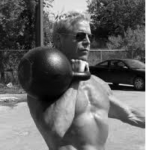
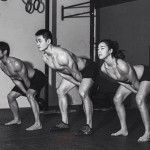
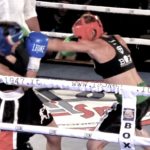
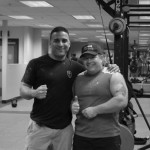
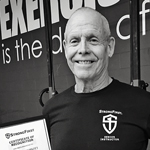
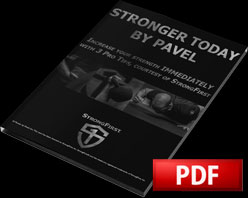
Congratulations good friend! you have been a true model of what you teach, thanks for all that you have shared with me. Mac
Hi Mac,
We’ve made a lot of rugby and life memories over the years…Canada, US, Scotland. Reminiscing about the 1986 Goodwill Rugby Tour to Czechoslovakia. The nuclear meltdown at Chernobyl while we were in Czechoslovakia…
When you asked me awhile back “What is the one word that describes rugby 🏉 to you?” My answer “Friendship!”
To our great camaraderie and many more adventures together! You are a class act.
congratualtions Cole, great that you receive a well deserved acknowledgment of a life well lived, and a model for those who know and work with your, glad to call you friend, I’ve enjoyed learning from you and sharing some great times, thanks buddy. mac
Thanks Mac! I’ve been learning from you since 1976. You are a true renaissance man and a wonderful friend!
Congratulations, Cole!
Thank you Milan!
Congratulations Cole!!! It’s an honour to call you a friend, colleague, and mentor. An outstanding accomplishment and so well deserved. Your passion for coaching, teaching, strength and the ability to make everyone a better person is unbelievable. A true legend and gentleman!!
Thank you so much Donnie! I learn a lot by watching you. Ditto on the friendship.
Cole, honored to have you as a friend and colleague!
Thank you very much Pavel! Your kind words mean a great deal to me!
Congratulations, Cole – an honor well-deserved.
Thank you very much Steve!